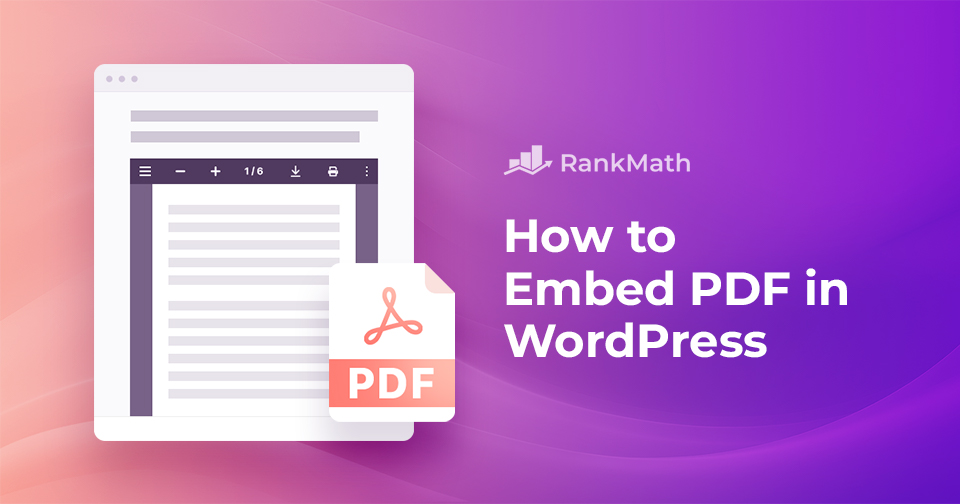WordPress is a robust platform that empowers effortlessly to create and manage diverse web content.
While WordPress excels in handling various media types, you can embed a PDF, which can be a game-changer when presenting documents seamlessly on your website.
By embedding PDFs directly into your posts or pages, you can provide your audience with a convenient and visually appealing way to access important documents without redirecting them to external links. This enhances your website’s professionalism and ensures a cohesive browsing experience for your audience.
In this post, we’ll explore various methods and plugins that cater to different preferences and technical skill levels. So, whether you’re looking to share research papers, product catalogs, user manuals, or any other document type, let’s learn how to embed a PDF in WordPress.
Let’s get started.
Table Of Contents
1 Why Embed a PDF in WordPress
Embedding PDFs in WordPress offers a streamlined user experience by allowing direct access to content within posts or pages, eliminating the need for your audience to download external files.
For example, a business showcasing product catalogs can enhance the audience’s convenience by embedding the catalog PDFs directly on the product pages.
This approach also ensures brand consistency, as the embedded documents integrate with the website’s design.
Educational institutions can maintain a cohesive look by embedding course materials directly on relevant pages.
Additionally, the practice enhances efficiency, reducing the clutter of downloaded files. From an SEO standpoint, embedding PDFs contributes to better discoverability, as search engines index embedded content.
2 Methods to Embed a PDF in WordPress
Let us now discuss the various methods to embed a PDF into your WordPress site.
2.1 Embed a PDF in WordPress Without a Plugin
Utilizing the File block within Gutenberg offers a user-friendly approach to integrating PDF documents into your posts or pages.
To incorporate a PDF using this method, navigate to your post where you wish to add a PDF file, add a new block by clicking the + sign, and select the File block, as shown below.
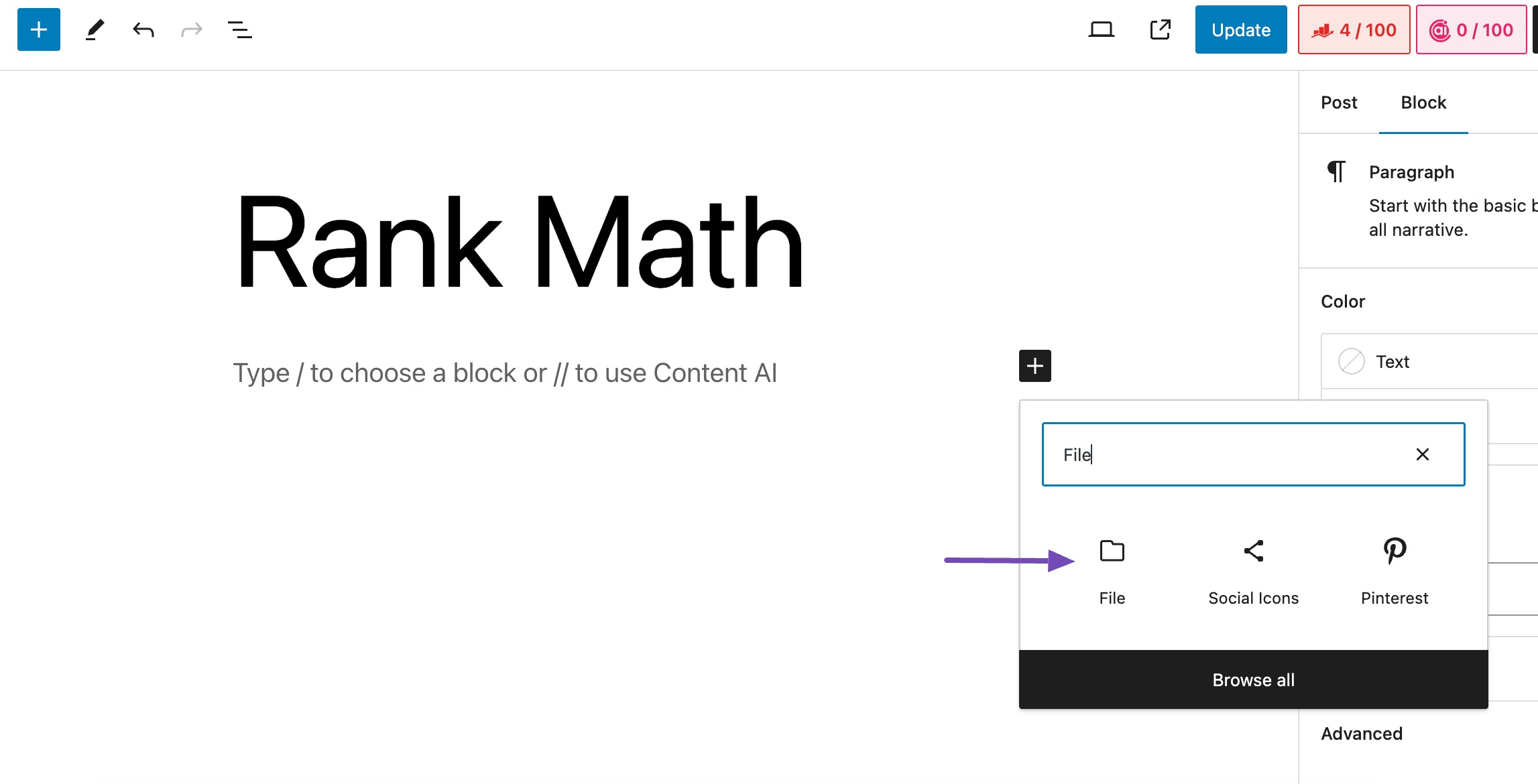
Click the Media Library button if your PDF is already in the WordPress media library. From there, you can easily select the PDF you wish to embed.
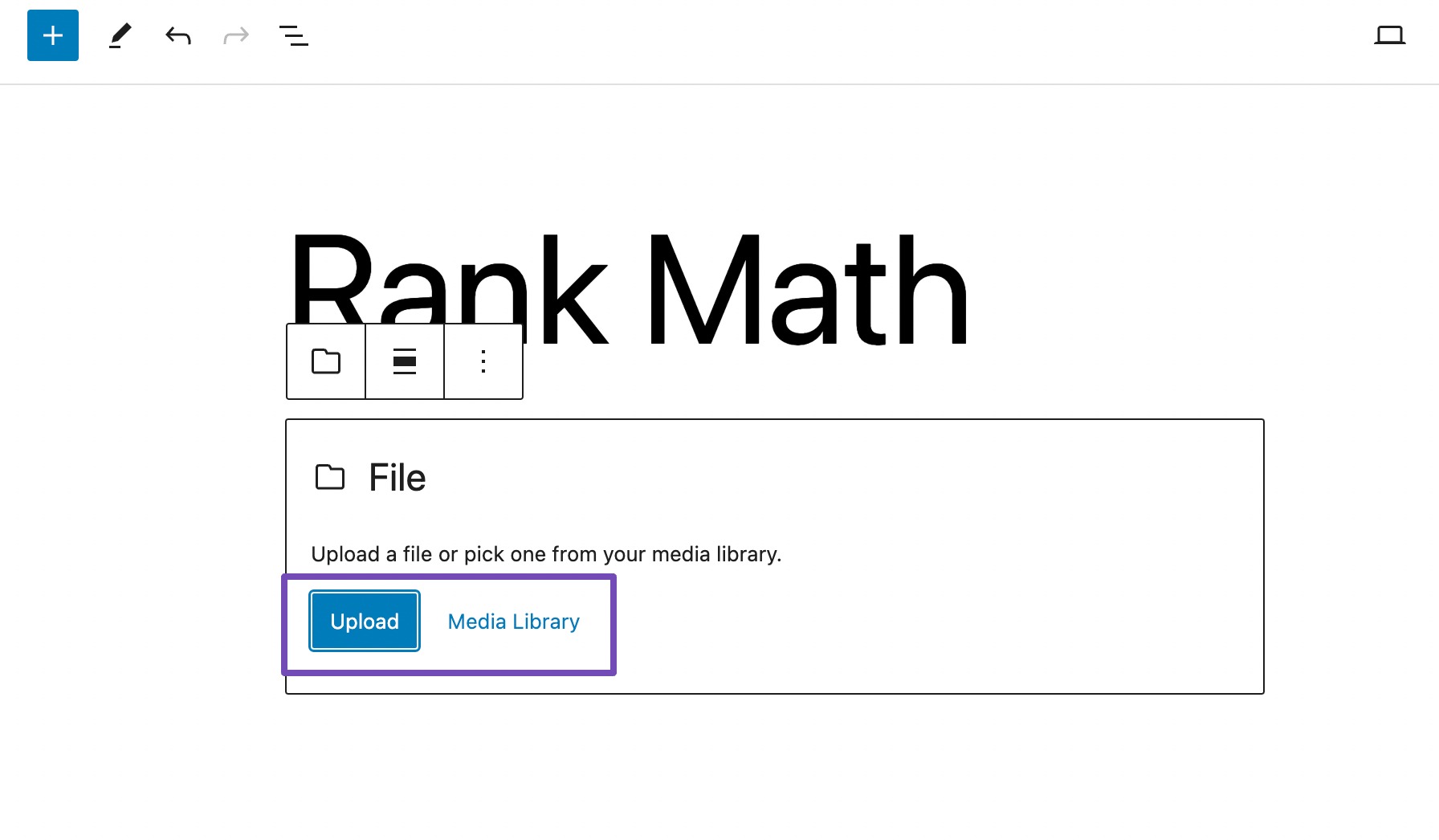
If the PDF hasn’t been uploaded yet, click on Upload and proceed to choose the file directly from your computer.
Select the PDF file you wish to insert and click on the Select button, as shown below.
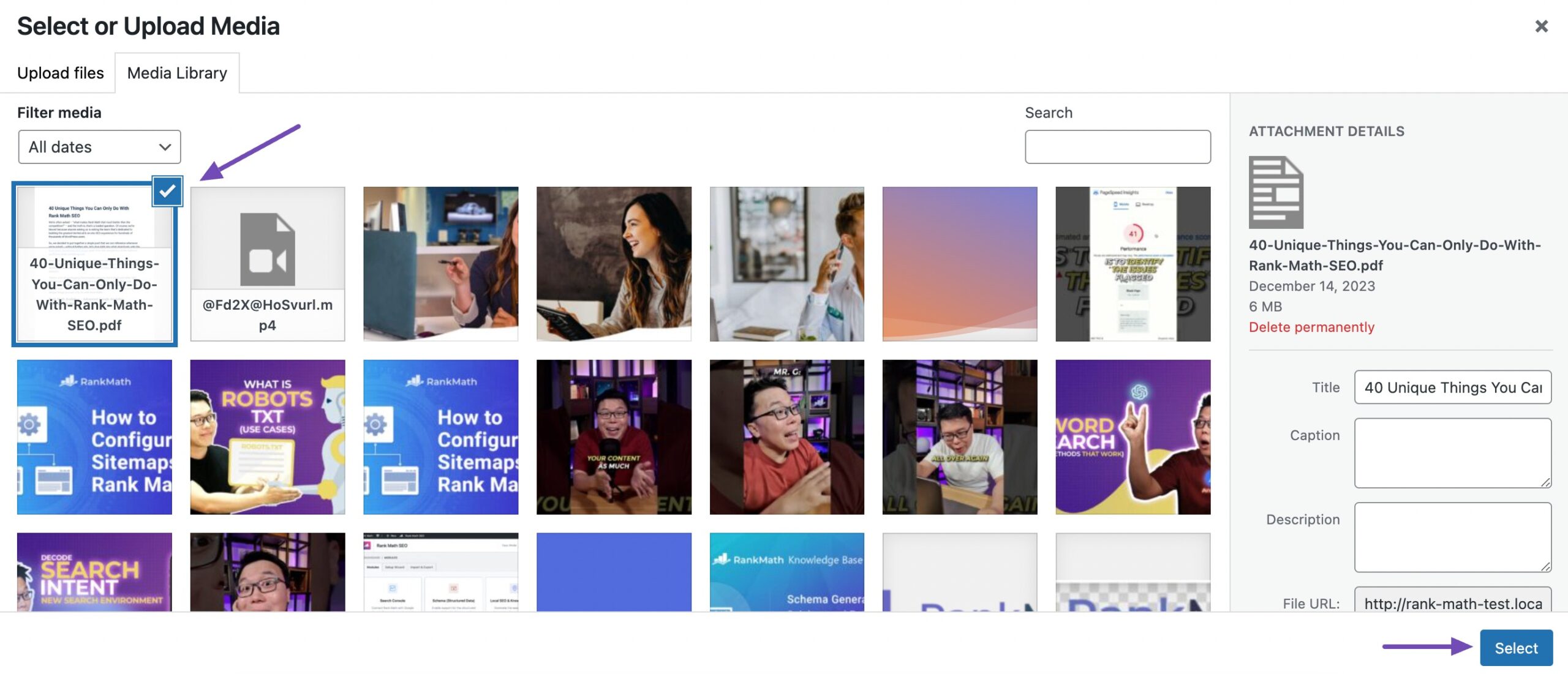
Gutenberg will automatically handle the embedding process once you’ve selected the PDF file.
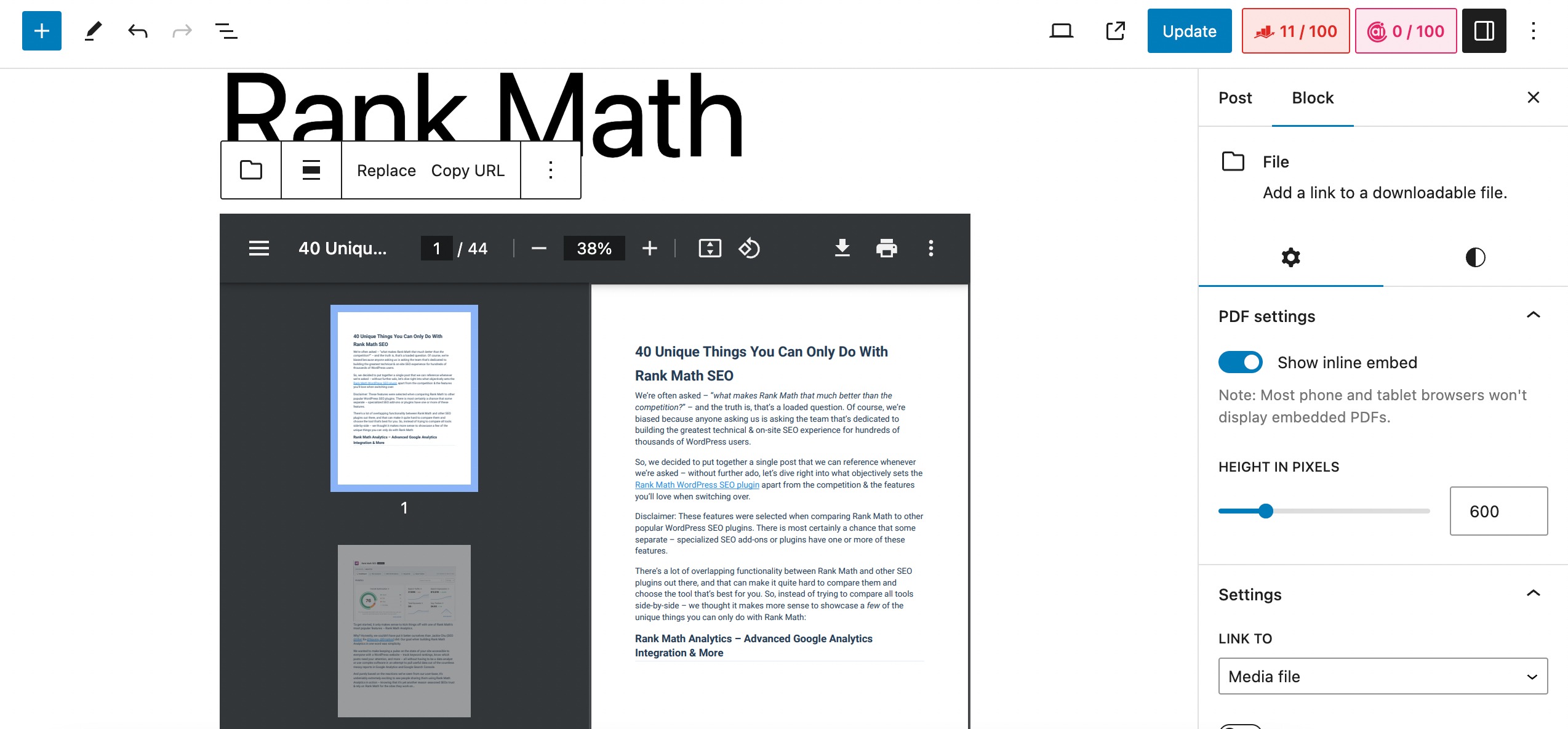
Furthermore, Gutenberg provides a range of customization options to refine the appearance and functionality of the embedded PDF.
You can directly adjust settings such as alignment, size, and linking preferences within the editor. The File block in Gutenberg allows for effortless resizing, enabling you to control the dimensions of the embedded PDF to align appropriately with the overall design of the content.
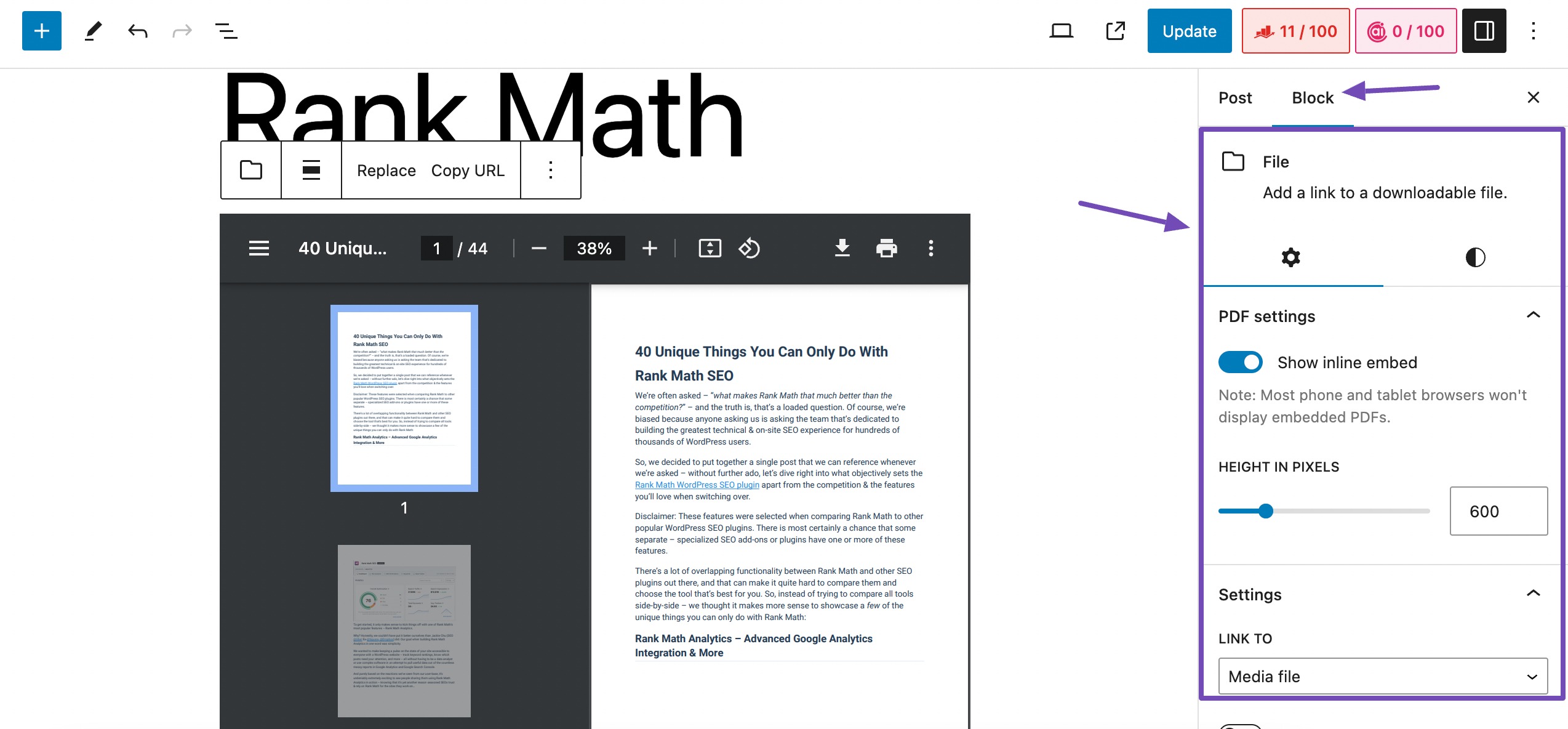
Additionally, linking options allow you to decide whether the embedded PDF should be linked to the media file or attachment page.
By default, WordPress displays a Download icon in the toolbar and a button beneath the PDF. If you enable the Show download button option in the Settings tab, it will appear at the bottom of the PDF file. Your website visitors can simply click on it to download the PDF file automatically.

Once you’re happy with the changes, click the Publish/Update button to save your changes. You can then visit your site and see the PDF added to your site.
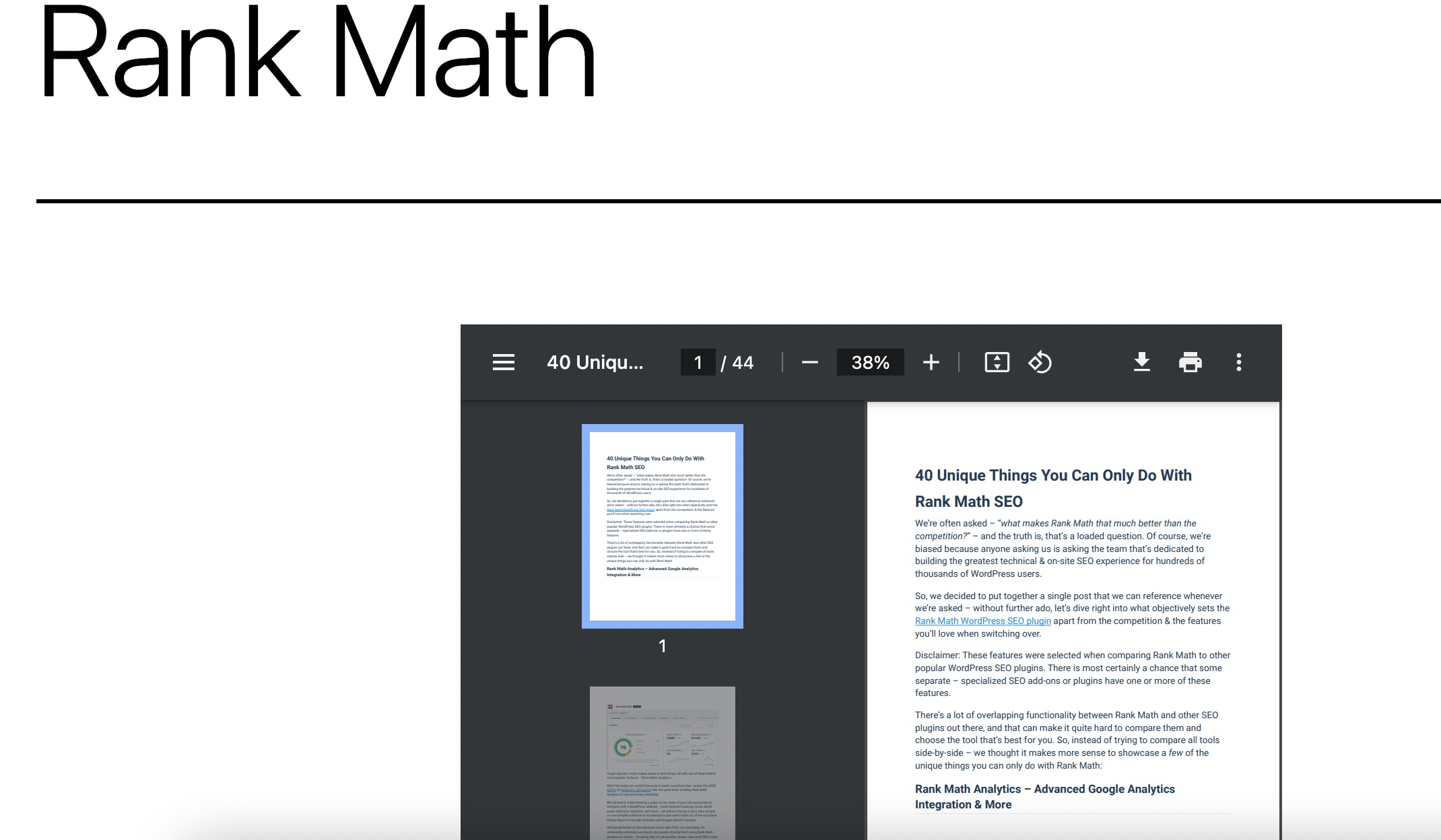
2.2 Embed a PDF Using a Plugin
WordPress offers a variety of plugins designed to enhance the functionality of embedding PDFs. Among these, the EmbedPress plugin stands out as a versatile solution for easy PDF integration.
At first, you’ll have to install and activate the EmbedPress plugin on your WordPress website.
Refer to our dedicated tutorial on installing and activating the plugin in WordPress.
Once the plugin is installed and activated, navigate to the post-editing screen and search for the EmbedPress PDF block, as shown below.
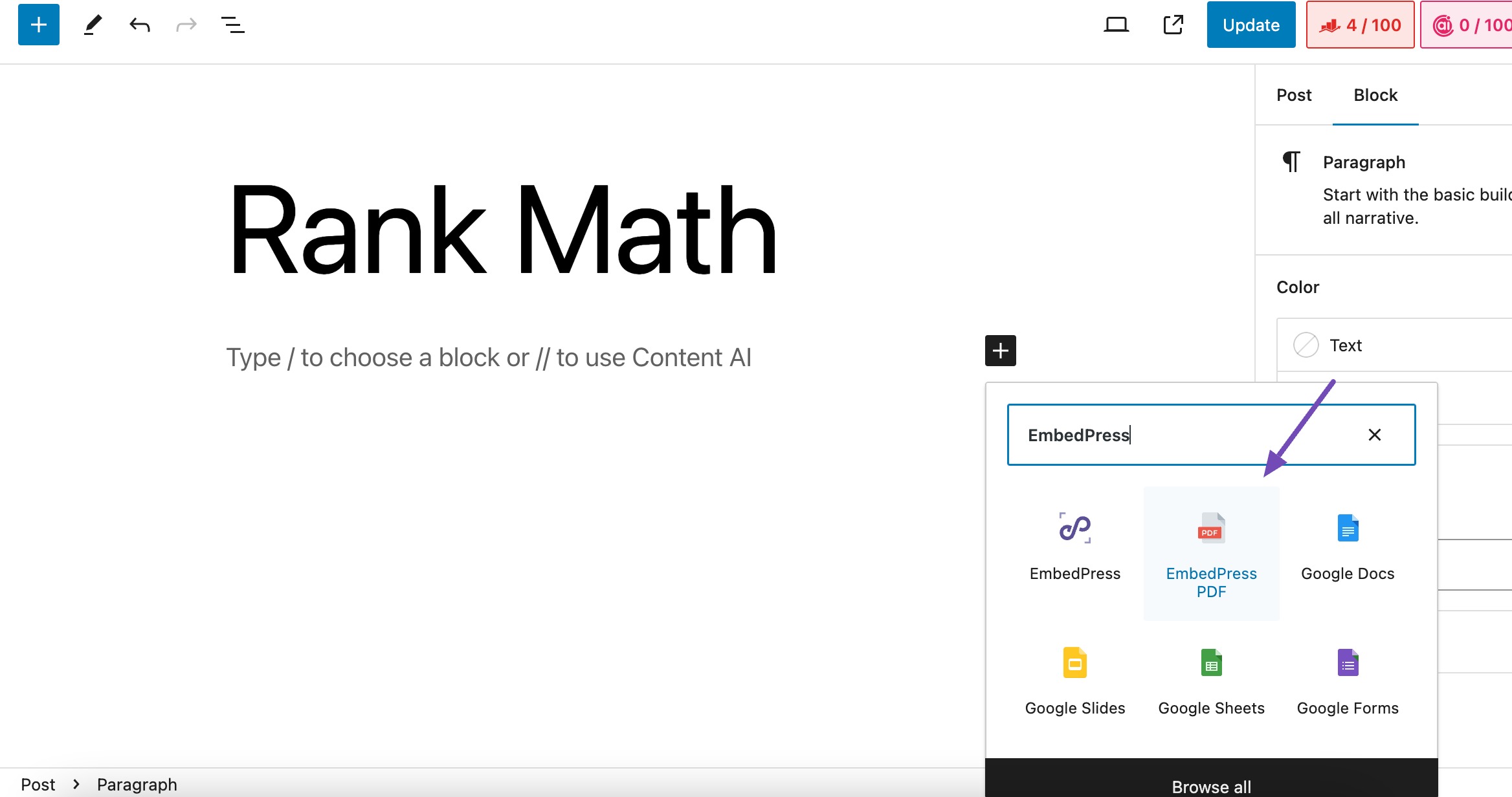
Next, click the Media Library option to add your PDF from the Media Library.
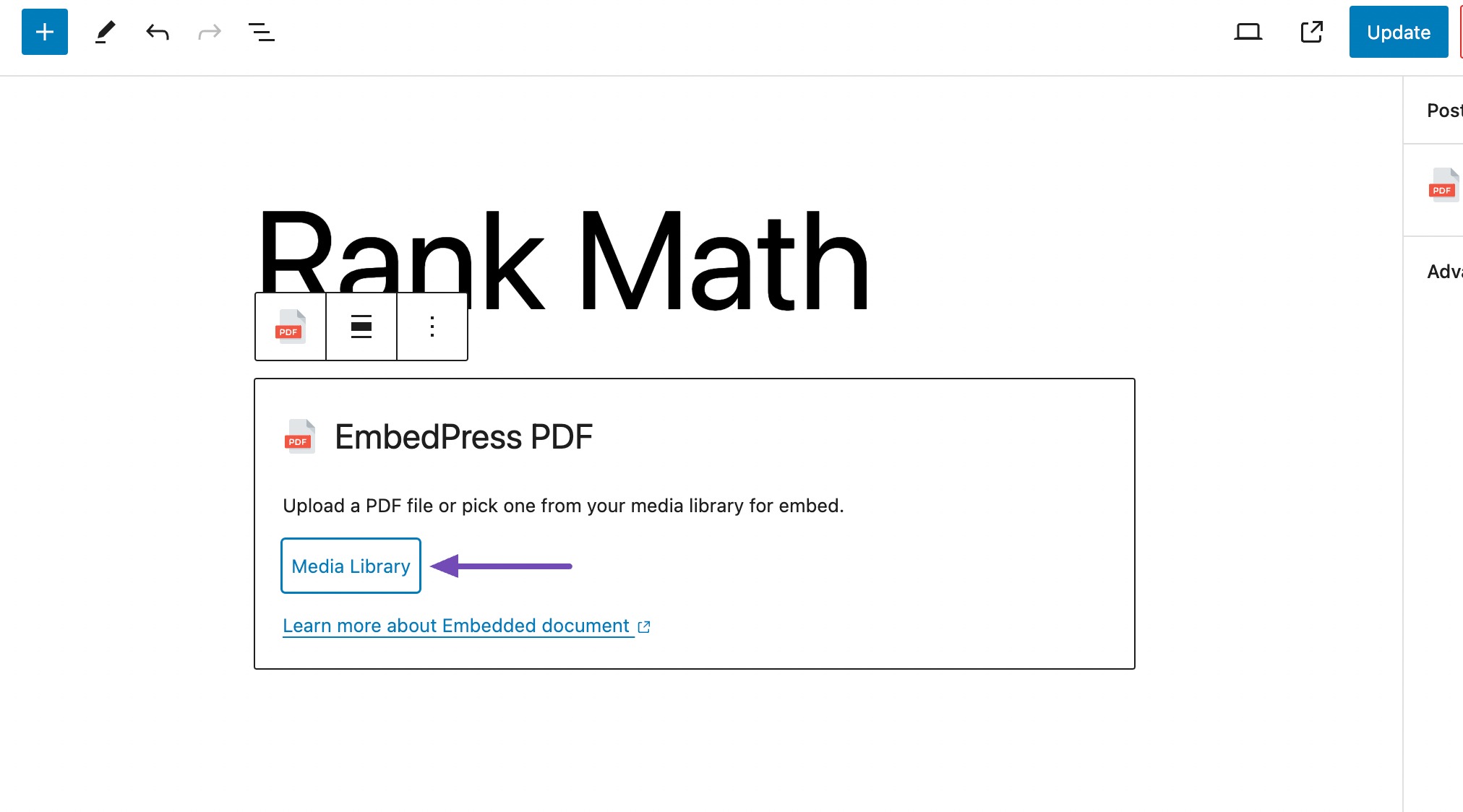
Choose the PDF file and click the Select button to add it to your post.
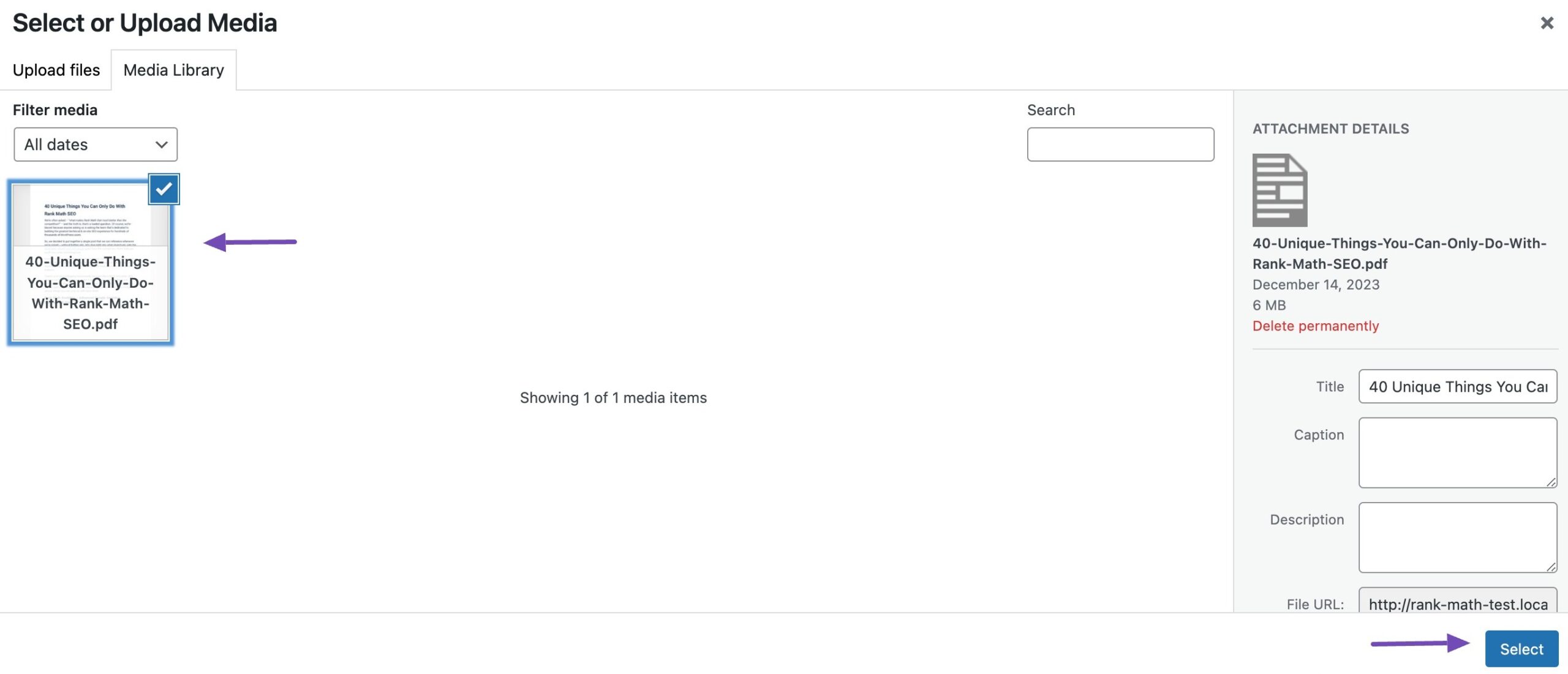
Your PDF will be added to your post within no time.
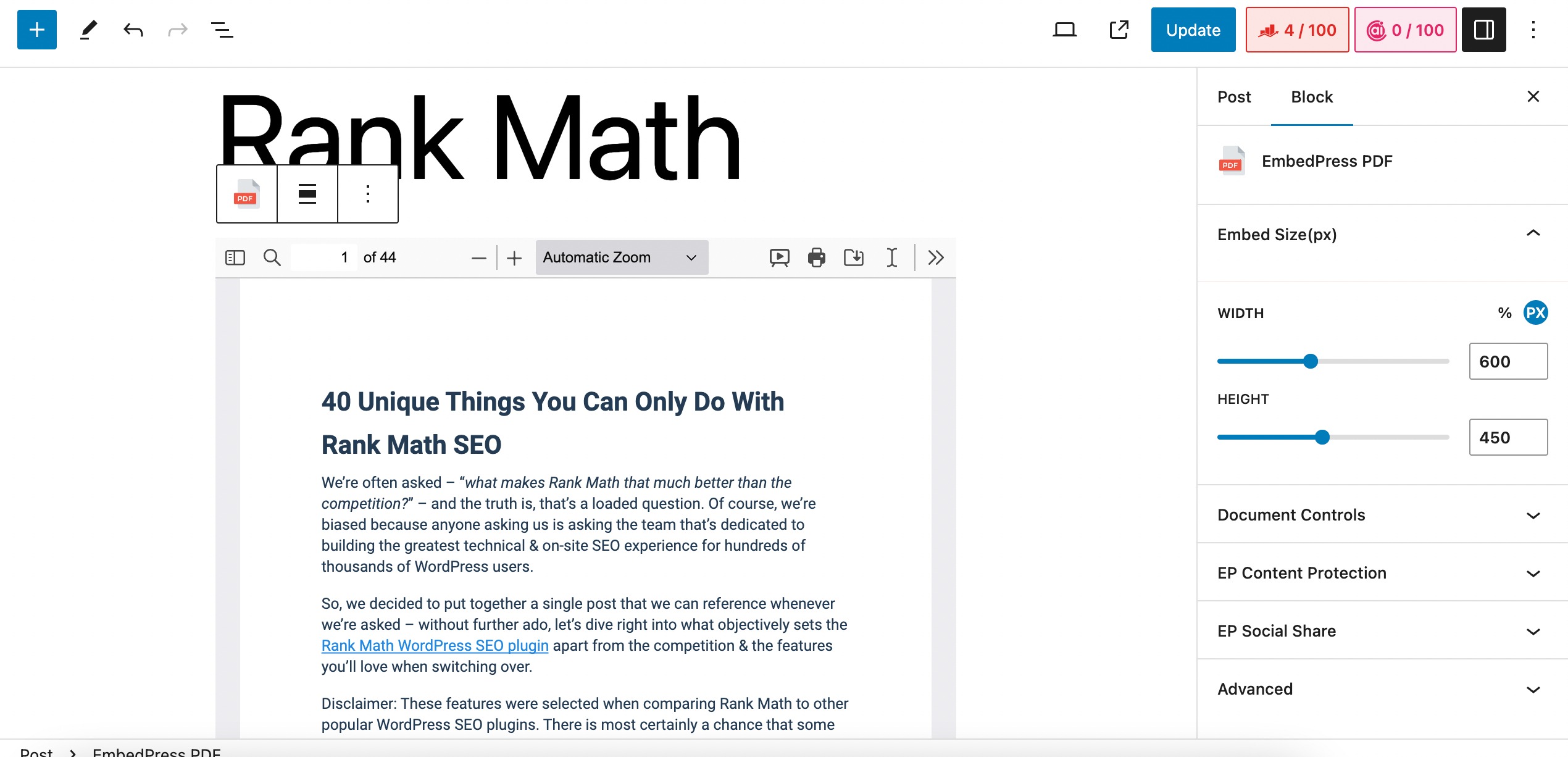
You’ll find Document Controls in the Settings tab, offering various options like Presentation mode, Add text, Properties, Rotation, and more. This tab also allows you to specify the PDF’s shareability and other settings.
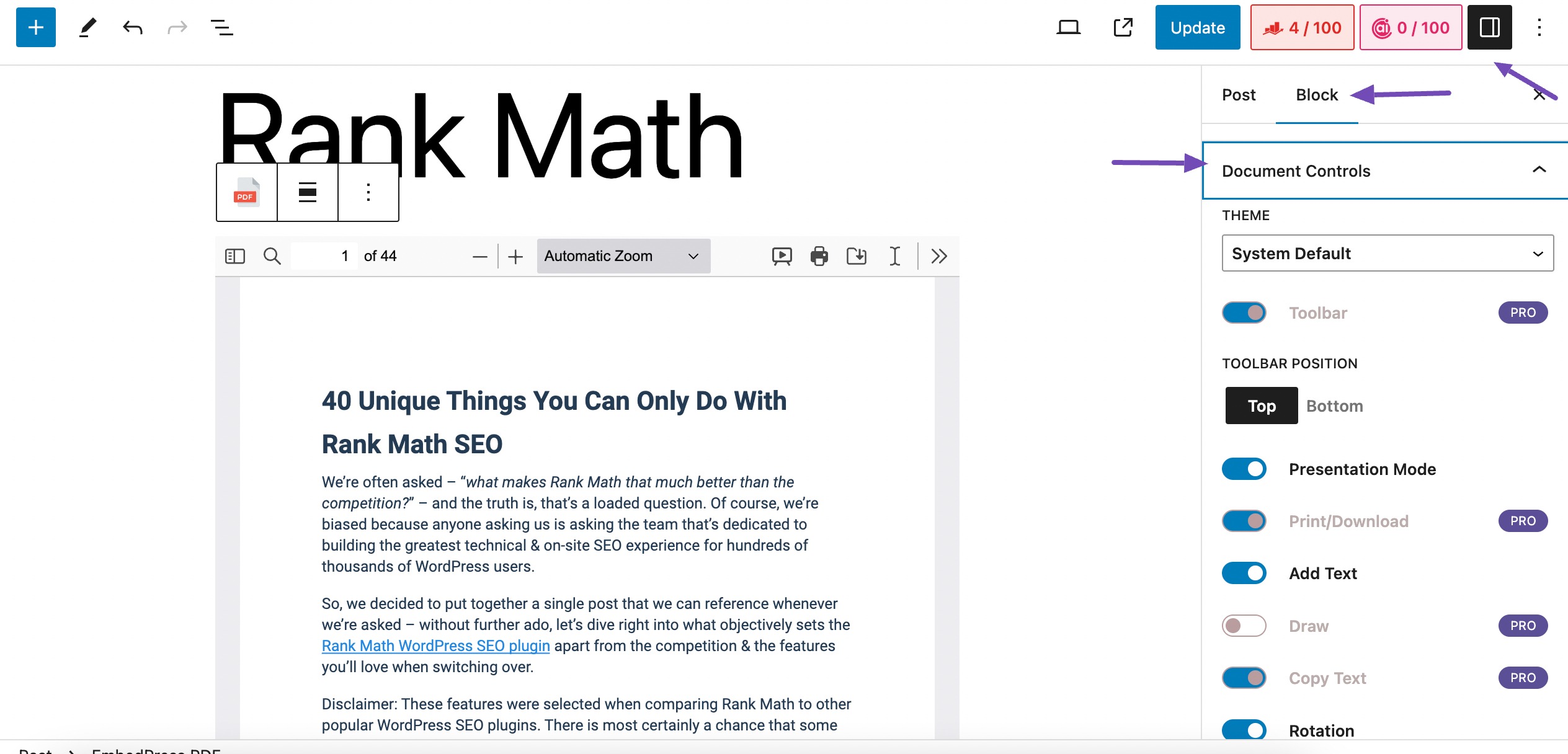
Once you’ve modified the PDF settings to your preferences, just click the Publish/Update button to make it live on your site.
It’s worth noting that the EmbedPress plugin offers broader customization possibilities compared to the default WordPress File block.
Moreover, the EmbedPress plugin integrates with the Elementor plugin, facilitating easy embedding of PDFs into your Elementor-powered pages.
2.3 Embed a PDF in WordPress Using Google Drive
To embed a PDF using Google Drive, begin by uploading the PDF document to your Google Drive account.
Once uploaded, right-click on the PDF file, select the Share option, and set the visibility to Anyone with the link.
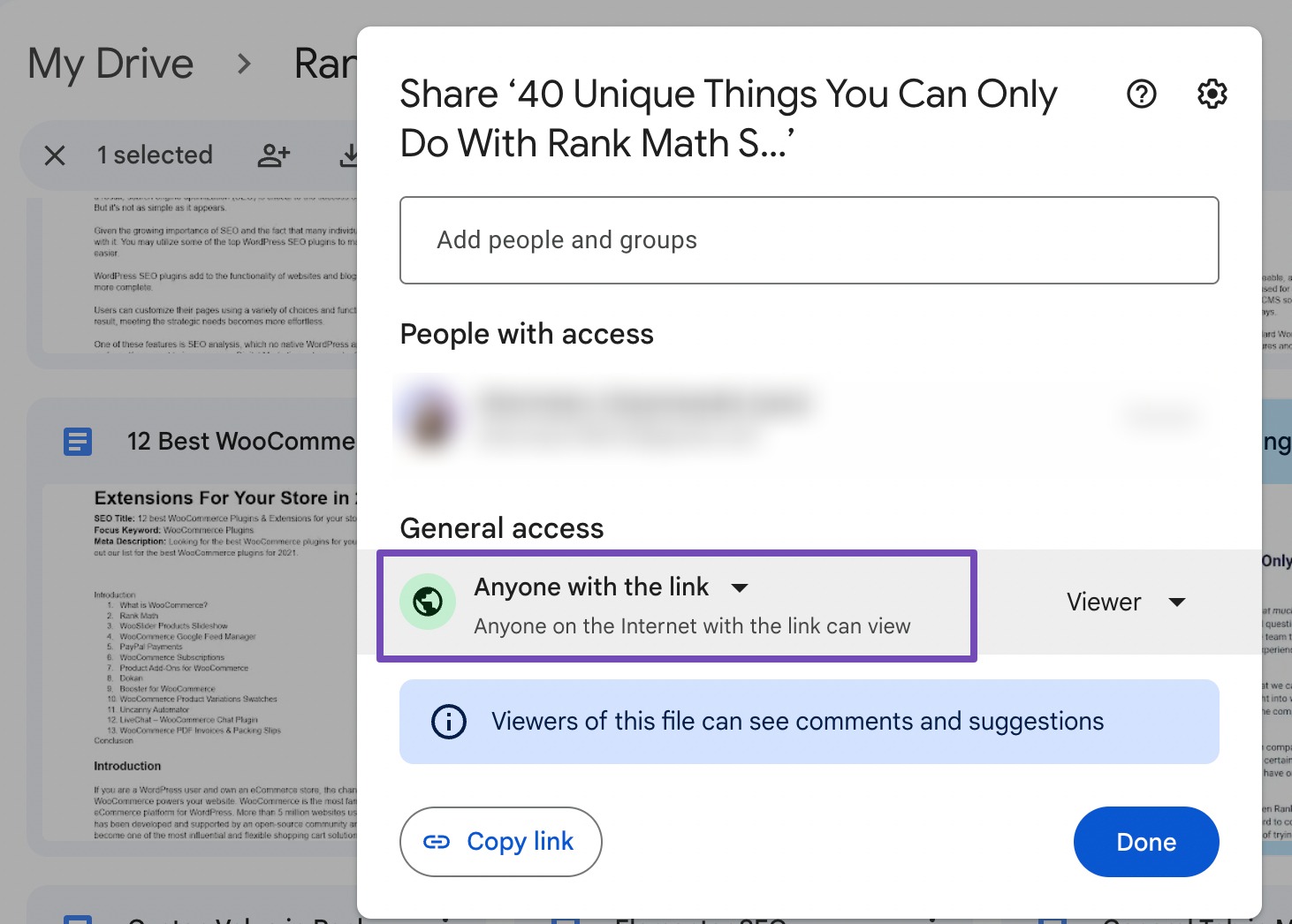
This ensures that the PDF is accessible for embedding.
Next, click again on the three dots in your PDF preview and select Open in new window option.
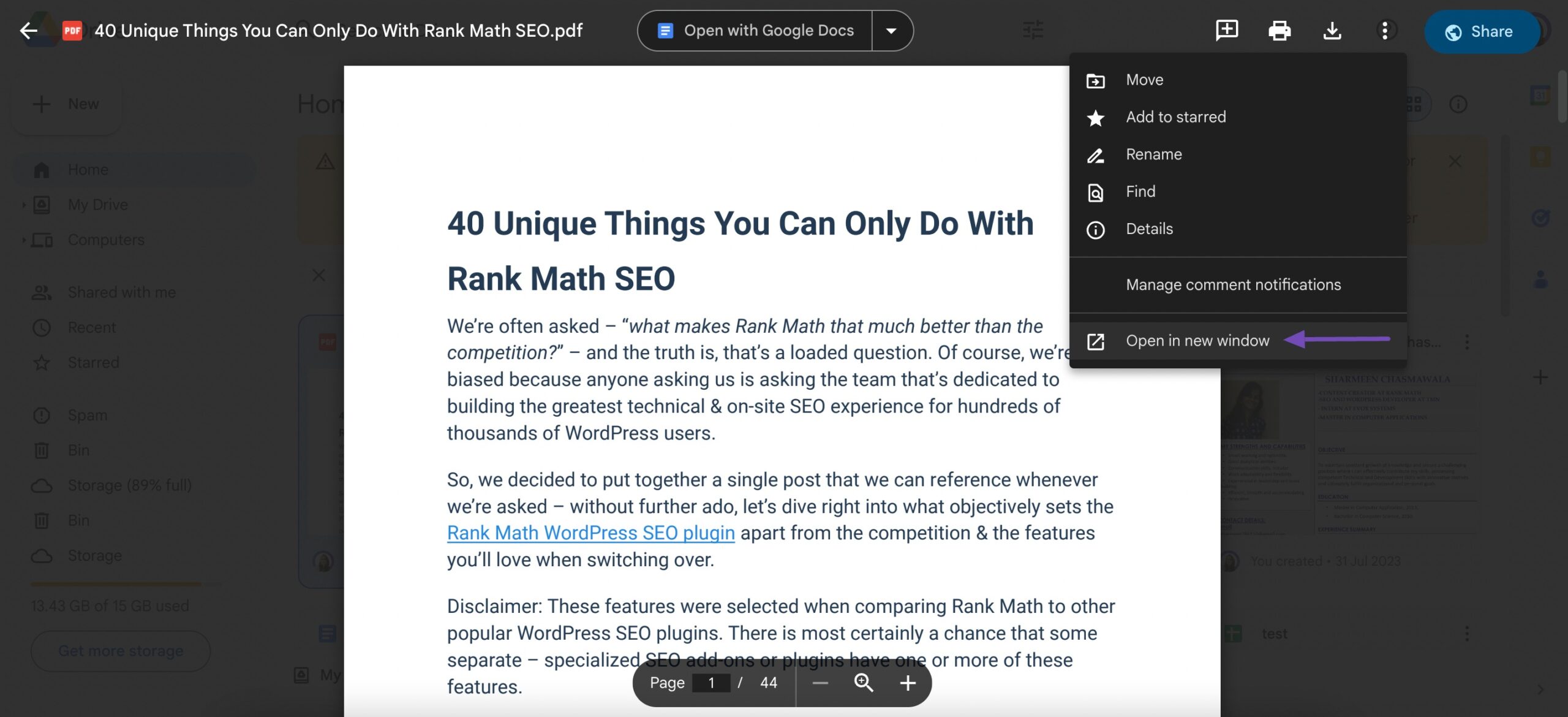
Once the PDF opens in a new window, click on the three vertical dots in the upper right corner and select Embed item.
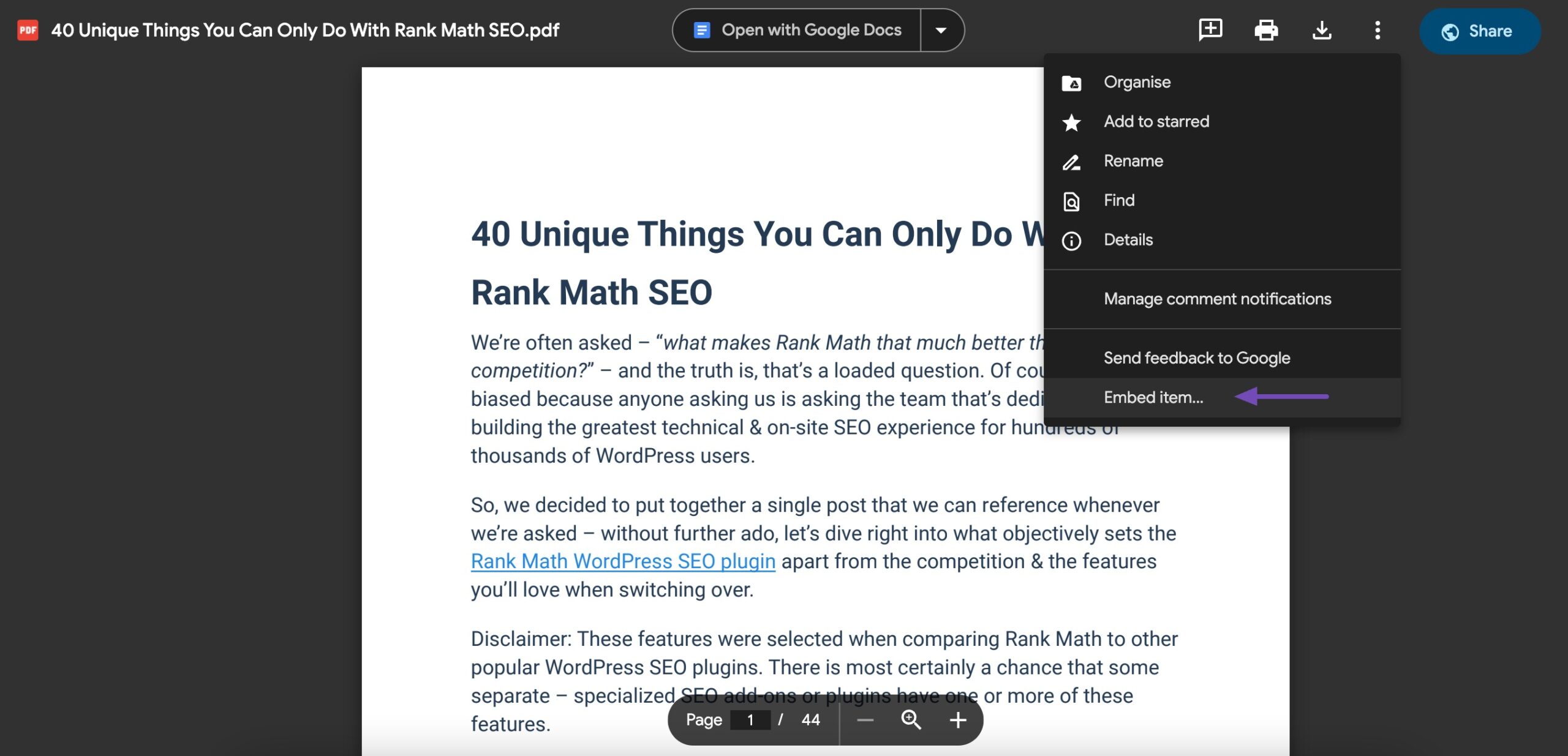
Google Drive will generate an HTML code snippet.
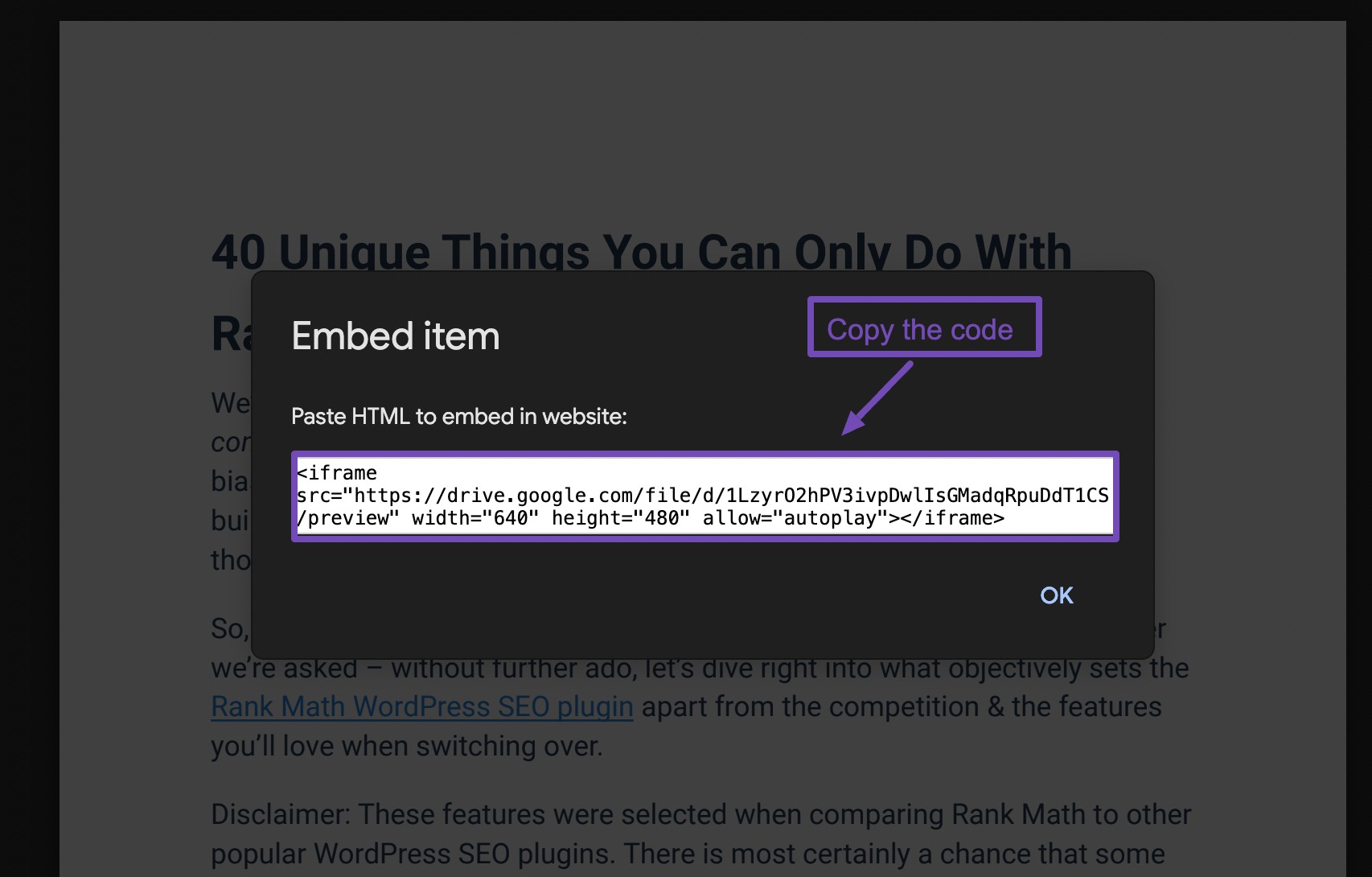
Copy this code and navigate to the WordPress post or page where you want to embed the PDF.
Add a Custom HTML block in the Gutenberg editor and paste the code, as shown below.
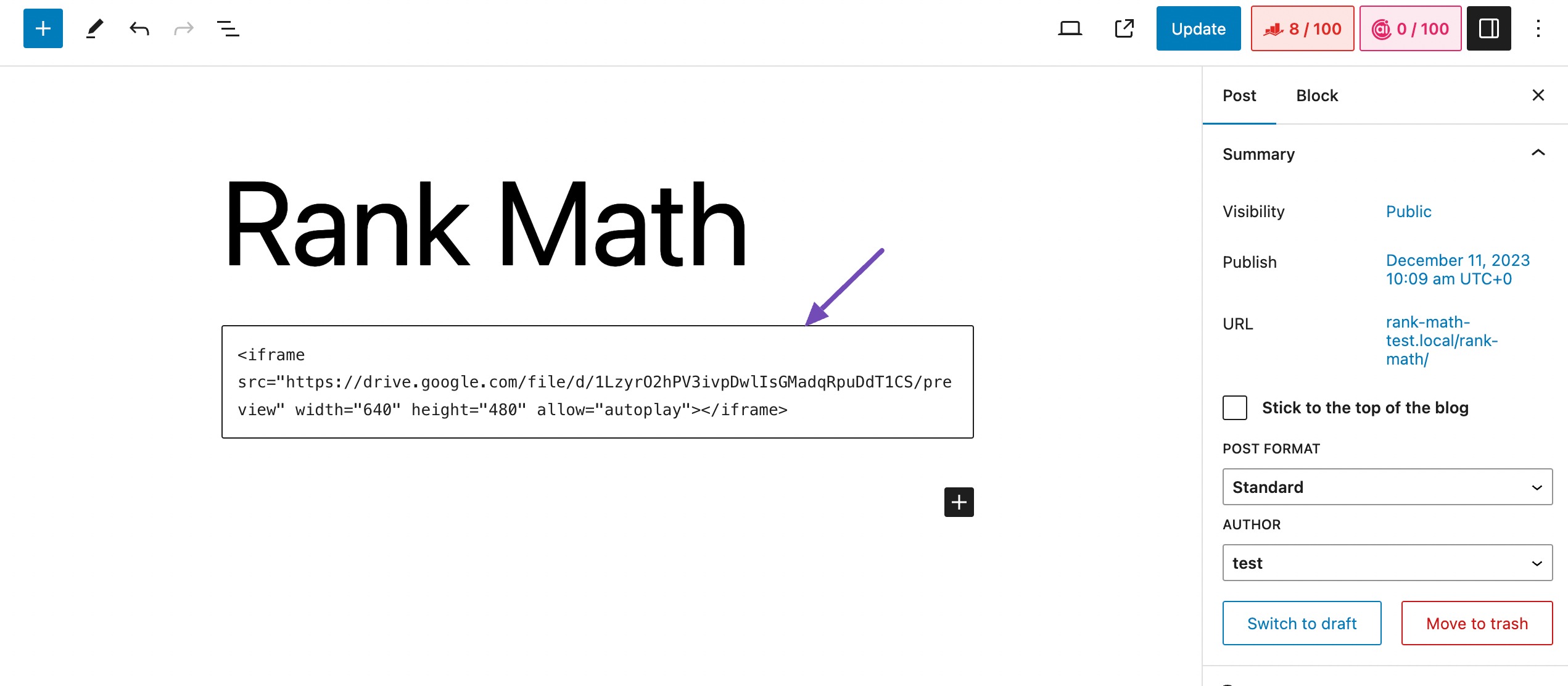
In the Classic editor, simply paste the code in the text editor, as shown below.

The embedded PDF will now be displayed upon publishing or updating the post/page.
3 Conclusion
Learning to embed a PDF in WordPress opens up possibilities for enhancing your website’s functionality and user engagement.
Whether you opt for the simplicity of direct embedding through the Gutenberg Editor, leverage the advanced features of plugins like EmbedPress, or explore the seamless integration offered by platforms like Google Drive, the benefits are clear.
As you navigate the diverse methods and tools available, consider the nature of your content and your audience’s preferences. With the right approach, embedding PDFs becomes a valuable skill in your toolkit, empowering you to share documents seamlessly and elevate the overall user experience on your WordPress site.
Have you been able to embed your PDF files in WordPress? If so, let us know by Tweeting @rankmathseo.
